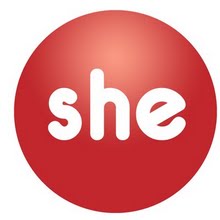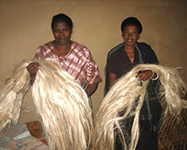Don't Be Late. Period.
/ Recently, at The Feast conference, I was introduced to an organization called Sustainable Health Enterprises (aka: SHE). Elizabeth Scharpf, founder of SHE, was on-hand at the event to share with us how her organization uses market-based approaches to solve a seriously pressing problem.
Recently, at The Feast conference, I was introduced to an organization called Sustainable Health Enterprises (aka: SHE). Elizabeth Scharpf, founder of SHE, was on-hand at the event to share with us how her organization uses market-based approaches to solve a seriously pressing problem.
But first: take a minute to think about what your life would look like in a developing country. For my part, it’s amazing how much I take for granted – whether it’s reliable electricity, supermarkets filled with fresh produce, a stable political system, or even just a roof over my head. In fact, I go through every day taking advantage of many basic necessities that others in the developing world would consider luxuries.
And I know I’m not alone in this. How many times have you stopped to wonder what your life would look like without internet access, for instance? Or, if you’re a woman, when was the last time you thought to yourself, what would I do if I didn’t have a sanitary pad or tampon to use?
Ok, yes, the topic can make some people feel squeamish, but in actuality this basic biological process has huge consequences for women and girls in the developing world: every 28 days their lives are completely disrupted by their menstrual cycles. This isn’t just a minor inconvenience we’re talking about – rather, SHE estimates that on average women in developing nations lose a total of 5 years of productivity over their lifetimes because they have their periods. Without sanitary protection, young girls can’t go to school and women can’t go to work, which ultimately means the entire community suffers.
Interestingly, Elizabeth and her team at SHE have developed a unique solution in which everyone wins. Take a look:
SHE's initial model involves funding women-owned business in Rwanda with enough capital to purchase banana trees (a bio-waste that farmers normally pay to have removed from their property). These women manufacture pads out of the fiber from these trees, and then sell the finished pads at reduced cost to other women in their community. Here’s the kicker: this business not only provides a clever solution to a basic problem, but it provides much-needed employment to other women. Initial revenues are first paid back to SHE, with any remainder going to build equity in the company. Once SHE starts recouping its initial funding, it’s able to lend it out again to other women. And the virtuous cycle continues.
Elizabeth is a true social entrepreneur whose venture produces a win-win for everyone involved. Don’t you just love these kinds of stories? If you want to learn more about SHE and support their work with a donation of $28, visit their website. Or, you can check out their blog to follow their progress. But hurry: their goal is to raise an initial $28,000 to fund their first start-up in Rwanda. They only need $10,000 more and the deadline is October 28th! Can you help them? As the video says, “Don’t be late. Period.”


